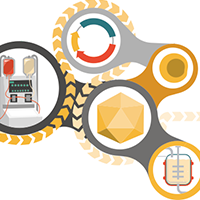Can iPSCs Address the Challenge of Maintaining Consistent Quality in Starting Materials Used in the Manufacture of Cell-Based Therapies?
Cell & Gene Therapy Insights 2019; 5(2), 227-232.
10.18609/cgti.2019.026
Despite the enormous progress being made in the clinical development of cell-based therapies, achieving consistency at scale remains a significant challenge. The fundamental problem is the inherent variability of human tissue donations: this donor to donor variability results in substantial inconsistency in therapeutic products each time a new donation is used as starting material. Further variability can arise during extensive culture expansion of therapeutic cells – a step which is often incorporated into manufacturing processes with the aim of minimising the number of new donations required.
Induced pluripotent stem cells (iPSCs) have the capacity to replicate indefinitely without loss of pluripotency, in addition to the ability to differentiate into any other type of cell in the body. Therefore, a single iPSC bank has the potential to give rise to an effectively limitless number of therapeutic cells. Great advances have been made in addressing challenges associated with the therapeutic use of iPSC-derived therapies, with the first clinical experience being gained in recent years, and numerous organisations are now actively engaged in the development of iPSC-derived therapies.
